In the Marvel Universe, we have often stumbled across characters who have had to bear the brunt of some other character’s poor decision-making skills. There are several instances wherein the narrative has been about characters being compelled to resolve issues that aren’t of their own making.
We, as audience, have often been a witness to the emotional upheaval that a character undergoes as a result of flawed decisions by governments, allies, or enemies. This aspect of the characters’ personal journey highlights the theme of exploring the burden of undertaking the responsibility of other people’s poor choices. Here’s a list of 9 characters from Marvel shows that faced the consequences of others’ poor judgment.
Ben Parker (Spider-Man: The Animated Series)
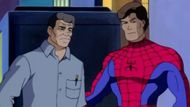
In the Spider-Man: The Animated Series (1994), Ben Parker, the uncle of the newly turned ‘Spider-Man,’ Peter Parker, dies an unfortunate death owing to the actions of a burglar. Even though Peter Parker is very much present at the scene, he quite unexpectedly chooses to dissociate from the situation instead of engaging with it. The death of Ben becomes a pivotal point in Peter’s, or rather Spider-Man’s, origin story. Even though Ben ends up dying a death that was caused by poor choices made by other people, he still managed to impact his nephew’s life by helping him take on responsibilities that come with great power. Peter is the one who faces the emotional aspect of the consequences of Ben’s death in this case.
Loki (Loki)
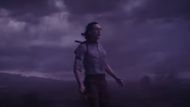
In the TV show Loki, we often find the central character, Loki, facing the consequences of someone else’s poor choices. Through the show’s exploration of timelines and the ramifications of changing them, it is evident that it isn’t always Loki’s own choices that lead him to face undesirable consequences. The TVA, or the Time Variance Authority, is established to maintain the Sacred Timeline, and its agents are responsible for enforcing the consequences of disrupting it. In case Loki or a variant deviates from the timeline, it ends up creating alternate timelines, thus disrupting it. Loki, being the God of trickery, often makes decisions that have unexpected consequences. His mere existence can even lead to catastrophic changes that, in turn, impact other characters and the stability of the Sacred Timelines.
Trish Walker (Jessica Jones)
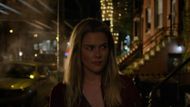
In the series Jessica Jones on Netflix, the character Trish Walker often faces the consequences of others’ bad choices throughout the show. At the beginning of the show, she’s shown to have been drawn into the plot due to past connections with IGH, the very company that happened to have granted her powers. Trish ends up getting all tangled up in a whirlwind romance with her ex-boyfriend, Will Simpson. These connections, unfortunately, lead her towards a dark path levied with unforeseen consequences. Her desire to learn more about her past connection with IGH and her relationship with Will ends with her becoming involved with all sorts of complicated and rather dangerous events. Trish often finds herself in situations orchestrated by Jessica Jones and Will Simpson and ends up getting directly affected owing to attempts to help or protect them.
Isaiah Bradley (The Falcon and the Winter Soldier)
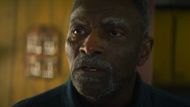
In the show The Falcon and the Winter Soldier, Isaiah Bradley gets used as a literal ‘lab rat’ by the government. To Isaiah, race is extremely important, and if at all he were to be a white man with blue eyes and blonde hair, the government wouldn’t have had him be incarcerated, and hidden from his own family and then experimented on him for the next 30 years. Bradley was a version of Captain America who served the government when Steve Rogers was still missing. He was one of several who were successfully given a version of the super-power serum, but he happened to be the only one who survived. But after innumerable missions, he had to face the dire consequences of someone else’s poor judgment. Had he not been rescued by a sympathetic nurse who faked his death, he would have rotted away while being treated as a lab rat.
Tilda Johnson (Luke Cage)
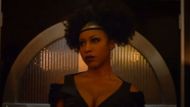
Tilda Johnson, as shown in the TV series Luke Cage, is deeply entangled in her mother Mariah Dillard’s criminal empire. One of the key aspects of her character is her facing the consequences of Mariah’s poor judgment. Mariah drags her daughter along in her subsequent descent into power and darkness. Tilda tries her best to escape this world, but to no avail. It catches up with her, and Tilda becomes more and more complicit, even when she actively doesn’t want to be. She gets betrayed, used, and forced to carry the emotional and social burden of her mother’s crimes. Mariah leaves Harlem's Paradise to Tilda in her will, despite Tilda wanting to do nothing with it. Tilda ends up becoming a literal “scapegoat”, at the hands of her own mother.
G’iah (Secret Invasion)
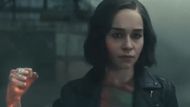
In the TV show “Secret Invasion”, G’iah’s journey is marked by the consequences laid out by other people’s poor judgment. G’iah gets thrust into a world that is shaped by the fallout of Nick Fury’s broken promises and Talos’s idealism. The Skrulls were once promised a new home, but decades later, the promise remains unfulfilled. Gravik takes full advantage of this disillusionment. G’iah realises the true price of following Gravik. Although she’s complicit in Gravik’s terrorism, she has been manipulated. Upon the death of her parents, she fully comes to her senses and learns what it means to have inherited the consequences of other people’s sinful acts. Even after gaining the power to fight back, which, in fact, should be considered a turning point for her, she isn’t completely free. She still carries the trauma caused by the loss of her family.
Foggy Nelson (Daredevil and Daredevil: Born Again)

Foggy Nelson in the Netflix series Daredevil is the perfect example of how people can constantly find themselves all caught up with dealing with the fallout of someone else’s made. Foggy, being Matt’s best friend, is the one who suffers the most whenever Matt puts on the mask of the Daredevil and sets out on a self-destructive crusade for justice. Foggy gets to pick up the pieces while Matt gets to be the secret hero and play out his alter ego. Foggy goes out of his way to protect Matt’s truth despite the latter not trusting his ‘best friend’ with this secret. Whether it’s getting threatened by Wilson Fisk or getting all caught up in legal cases connected to the Daredevil’s actions, it’s always Foggy who becomes a target. In Daredevil: Born Again, it is because of Foggy's selfless nature and others' lapse in judgment that he loses his life.
Yelena Belova (Hawkeye)
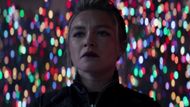
The character Yelena Belova, in Marvel Studios' limited series Hawkeye, deals with the consequences of other people’s poor judgments, especially that of Natasha Romanoff and Valentina Allegra de Fontaine. Yelena loses five years of her life due to the Blip. Upon her return, she’s thrown off with the information about Natasha’s death, and she can’t fully comprehend it. While Yelena grieves and is angry, Valentina chooses to exploit her condition by feeding her the lie that Clint Barton is responsible for the death of Natasha. Valentina turns Yelena into a weapon by gaining power over her vulnerable side and fuelling her up with misinformation, and sending her after Clint. Yelena nearly kills Clint, thinking that he’s responsible for Natasha’s death, and ends up becoming an antagonist. Yelena finally confronts Clint, although he refuses to fight back and tells Yelena the truth about Natasha’s death. Yelena is devastated, not just by the truth about Natasha’s death but also by the realization that she nearly took someone’s life.
Vanessa Marianna-Fisk (Daredevil and Daredevil: Born Again)
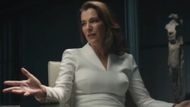
Vanessa Marianna-Fisk in the series Daredevil definitely faces the consequences of Wilson Fisk’s poor judgment. Although Vanessa starts as an elegant and composed art dealer, removed from Kiosk’s criminal life, she gets pulled into Fisk’s world owing to his need to control everyone and everything. His decision to publicly date Vanessa puts a target on her back. Fisk’s enemies try to poison Vanessa at a public event in a direct attempt to attack him. She gets hospitalized and nearly dies. When Vanessa becomes aware of the true meaning of choosing to love Fisk, she decides to become his accomplice partly out of love. Even then, it's she who gets to face the consequences of his ambition and violent streak. Matt Murdock even plans on ending Fisk’s life through Vanessa, further proving how much of a dangerous situation she is in. Vanessa becomes collateral damage in Fisk’s war with Daredevil and the world.
